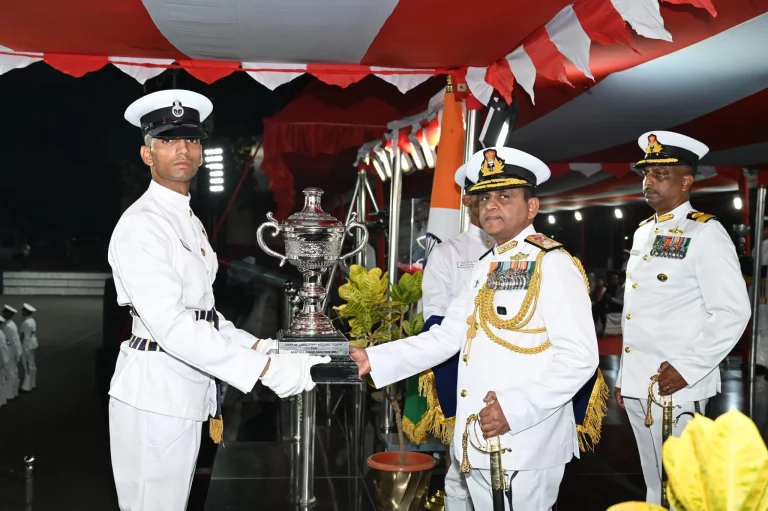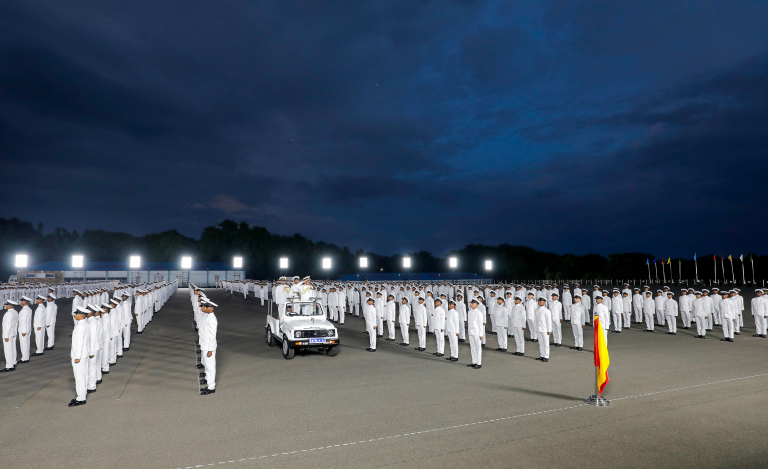A career in the Merchant Navy presents an exhilarating and financially rewarding opportunity for individuals passionate about maritime operations. As a critical component of global trade, the merchant navy is responsible for the transportation of goods and passengers across international waters. This comprehensive guide delves into the various facets of a career in the merchant navy, including job roles, qualifications, training, career prospects, and benefits.
Introduction to the Merchant Navy
The merchant navy comprises a fleet of commercial ships that facilitate the transportation of cargo and passengers globally. Unlike the naval forces, which primarily focus on defense, the merchant navy is dedicated to trade and transportation. The fleet includes a diverse array of vessels such as tankers, cargo ships, bulk carriers, passenger ships, and container ships.
Key Roles in the Merchant Navy
A career in the merchant navy encompasses several roles, each with distinct responsibilities across different departments.
Deck Department
The deck department is responsible for navigation, cargo operations, and the overall management of the ship.
- Captain: The highest-ranking officer on the ship, the captain is responsible for the overall operation, safety, and navigation.
- Chief Officer: The second-in-command, tasked with cargo operations, deck maintenance, and crew management.
- Second Officer: Primarily responsible for navigation and bridge watch-keeping.
- Third Officer: Assists with navigation, maintenance of safety equipment, and bridge watch-keeping.
Engine Department
The engine department manages technical operations, machinery maintenance, and engineering tasks.
- Chief Engineer: The head of the engine department, responsible for all engineering operations on the ship.
- Second Engineer: Assists the Chief Engineer and oversees daily engine room operations.
- Third Engineer: Manages specific machinery and assists with engine room duties.
- Fourth Engineer: Handles the maintenance and operations of engine room equipment.
Catering and Hospitality Department
This department is responsible for food preparation and hospitality services, particularly on passenger ships.
- Chief Cook: Manages kitchen operations and food preparation.
- Steward: Provides hospitality services to passengers and crew.
Table: Summary of Key Roles and Responsibilities
| Department | Role | Responsibilities |
|---|---|---|
| Deck Department | Captain | Overall operation, safety, and navigation of the ship |
| Chief Officer | Cargo operations, deck maintenance, and crew management | |
| Second Officer | Navigation and bridge watch-keeping | |
| Third Officer | Navigation assistance, safety equipment maintenance, and bridge watch-keeping | |
| Engine Department | Chief Engineer | All engineering operations on the ship |
| Second Engineer | Daily engine room operations and assistance to Chief Engineer | |
| Third Engineer | Management of specific machinery and assistance in engine room duties | |
| Fourth Engineer | Maintenance and operations of engine room equipment | |
| Catering Department | Chief Cook | Management of kitchen operations and food preparation |
| Steward | Provision of hospitality services to passengers and crew |
Eligibility for the Merchant Navy
To pursue a career in the merchant navy, candidates must meet specific educational and medical requirements.
Merchant Navy Educational Qualifications
Deck Department
- Captain and Officers: A degree in nautical science or maritime studies from a recognized maritime institute, along with the completion of a pre-sea training course approved by the Directorate General of Shipping (DGS).
- Rating (Deck Crew): Minimum qualification of 10th standard, followed by a Deck Rating course approved by the DGS.
Engine Department
- Engineers: A degree in marine engineering from a recognized institute, or alternatively, a diploma in mechanical or electrical engineering followed by a pre-sea training course.
- Rating (Engine Crew): Minimum qualification of 10th standard, followed by an Engine Rating course approved by the DGS.
Catering Department
- Chief Cook and Steward: Certificate or diploma in catering and hospitality management.
Required Medical Fitness
Candidates must pass a medical examination conducted by an approved medical practitioner to ensure they meet the physical and mental fitness standards required for sea service.
Training and Certification in the Merchant Navy
Training is a crucial aspect of a career in the merchant navy, involving both pre-sea and on-board training. Essential certifications include:
- Pre-Sea Training: Conducted at maritime training institutes, covering theoretical and practical aspects of maritime operations.
- On-Board Training: Practical training on board a ship under the supervision of experienced officers, essential for gaining hands-on experience.
- Certification: Upon completing training, candidates must obtain relevant certificates of competency from maritime authorities such as the Directorate General of Shipping (DGS) in India.
Career Progression in the Merchant Navy
A career in the merchant navy offers excellent opportunities for progression within both the deck and engine departments.
Deck Department
- Junior Officers: Start as Third Officer and progress to Second Officer, Chief Officer, and ultimately Captain.
Engine Department
- Junior Engineers: Start as Fourth Engineer and progress to Third Engineer, Second Engineer, and ultimately Chief Engineer.
Benefits of a Career in the Merchant Navy
A career in the merchant navy comes with numerous benefits, including:
- Attractive Salary: Competitive salaries with additional allowances and benefits.
- Tax Benefits: Seafarers often enjoy tax-free income under certain conditions.
- Travel Opportunities: Opportunities to travel the world and experience different cultures.
- Job Security: High demand for skilled maritime professionals ensures job security.
- Adventure and Lifestyle: Exciting and adventurous lifestyle with long periods at sea.
Challenges in the Merchant Navy
Despite the many benefits, a career in the merchant navy also presents certain challenges:
- Extended Time Away from Home: Long periods away from family and friends.
- Rigorous Working Conditions: Demanding and sometimes hazardous working conditions.
- Physical and Mental Stress: The job requires good physical and mental health to cope with the stress and isolation of life at sea.
Conclusion
A career in the merchant navy is both challenging and rewarding, offering unique opportunities for adventure, travel, and financial benefits. With the right qualifications and training, aspiring maritime professionals can embark on a fulfilling career on the high seas. Whether you aim to sail ships as a deck officer, maintain machinery as an engineer, or provide hospitality services, the merchant navy offers a diverse range of career paths to explore.
FAQs
Q1: Are there any age limits for joining the Merchant Navy?
Yes, the age limits typically range from 17 to 25 years for officer-level entry. However, there may be relaxations for candidates with higher qualifications or prior maritime experience.
Q2: What medical fitness standards must be met?
Candidates must pass a medical examination conducted by an approved medical practitioner to ensure they meet the physical and mental fitness standards required for sea service. This includes good eyesight, no color blindness, and overall physical fitness.
Q3: What certifications are necessary for a career in the Merchant Navy?
Upon completing training, candidates must obtain relevant certificates of competency from maritime authorities such as the Directorate General of Shipping (DGS) in India. These certifications validate the individual’s skills and knowledge to perform their duties on board.
Q4: What are the prospects for job security in the Merchant Navy?
The demand for skilled maritime professionals remains high due to the critical role the Merchant Navy plays in global trade. This ensures a stable job market and good job security for qualified individuals.
Q5: Can women join the Merchant Navy?
Yes, women can join the Merchant Navy and serve in various roles across all departments. The industry is increasingly promoting diversity and inclusion.









